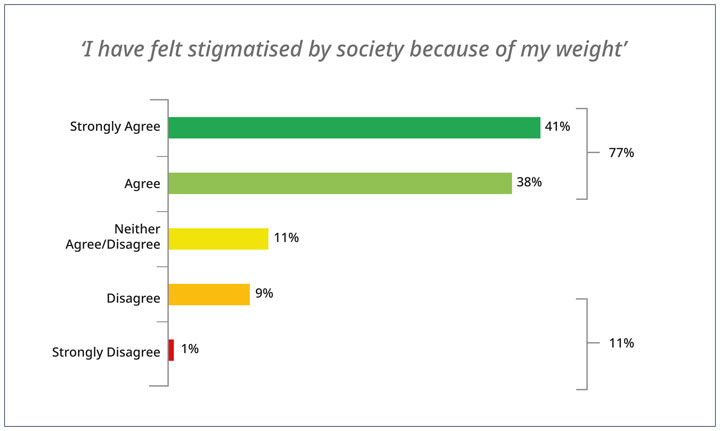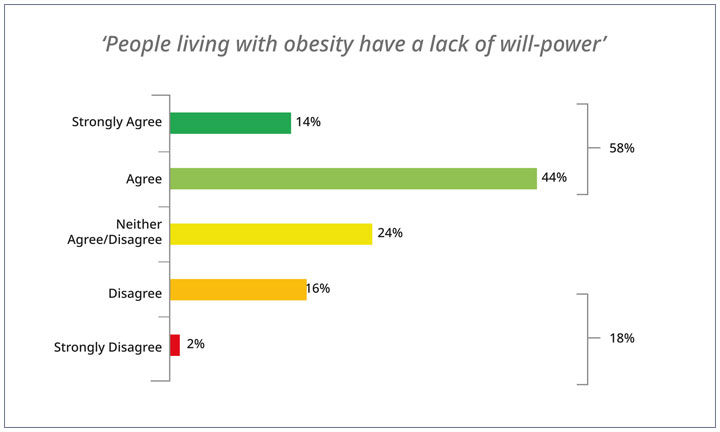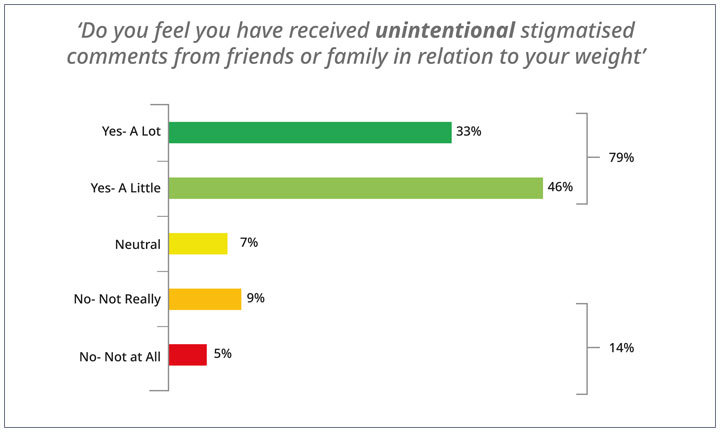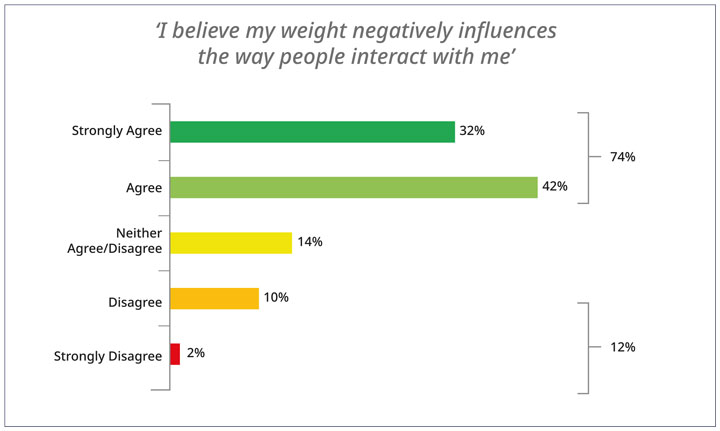The World Obesity Federation has defined obesity as a chronic relapsing, progressive disease process5. Despite this, people living with obesity often face weight bias and stigma across all areas of society6.
WHO defines obesity stigma as “actions towards individuals living with obesity that can cause exclusion and marginalisation, and lead to inequities”7. This has been documented in occupational, educational, social and healthcare settings6.
The drivers of stigma are often based around a misunderstanding of the complex causes of obesity, with people attributing weight gain to personal responsibility, while failing to understand the complex mix of genetics, environment, and biological factors that drive the disease8. Many hold the view that people living with obesity are personally responsible for their weight and there exists a culture of blaming people with obesity for their condition. However, we have come to understand stigmatising obesity undermines people’s health and can act as a significant barrier to health-seeking behaviour, care and adherence to treatment9,10.
Current science is now guiding our understanding that obesity is a complex chronic disease and not the fault of any one individual. We need to work harder at delivering this message and creating understanding, empathy and urgency to deliver multidisciplinary care that supports people living with obesity.
Although raising awareness of the negative consequences of weight stigma is important, awareness alone is not sufficient to eliminate the issue. Challenging and changing widespread, deep-rooted beliefs, longstanding preconceptions, and prevailing mindsets requires a new public narrative of obesity that is coherent with modern scientific knowledge. Education around the multiple factors influencing body weight and rethinking the way we understand the causes and treatment for obesity can only be achieved through the concerted efforts of a broad group of stakeholders, including healthcare providers (HCPs), researchers, the media and policy makers.
In order to gain an understanding of the current societal narrative around obesity in Ireland and the experiences of individuals living with the disease, surveys were developed to capture the current ideas, attitudes and experiences of the Irish general public and people living with obesity in September 2021. The surveys were carried out by iReach on behalf of Novo Nordisk, with the support of the Irish Coalition for People living with Obesity (ICPO) and gathered over 1,000 responses.
The ICPO, a patient led organisation, advocates and provides support for people living with obesity. As a group of people living with obesity, their aim is to provide or direct people to education, support and raise awareness for people living with overweight or obesity across Ireland.
Ms Susie Birney, the Executive Director for the ICPO believes that weight stigma, in all its shapes and forms, needs to be addressed as a matter of urgency. Particularly in the healthcare setting where the direct reaction we see from our community is people who need vital treatment do not return for further consultations.
Speaking on the need for the surveys, Susie says “Stigma in the healthcare setting, or from our family even, is predominantly unintentional. However, words matter and the outcome is the same. Acting together we can all play our part in raising awareness of how and why we need to change our words.”
Dr Jean O’Connell is a Consultant Endocrinologist and Chairperson of the Association for the Study of Obesity in Ireland and provided additional input into the survey project. Commenting on the surveys Dr O’ Connell said, “They demonstrate the need for us to change the obesity narrative and follow the science, which clearly shows that obesity is a complex, chronic disease, not a lifestyle choice.”







